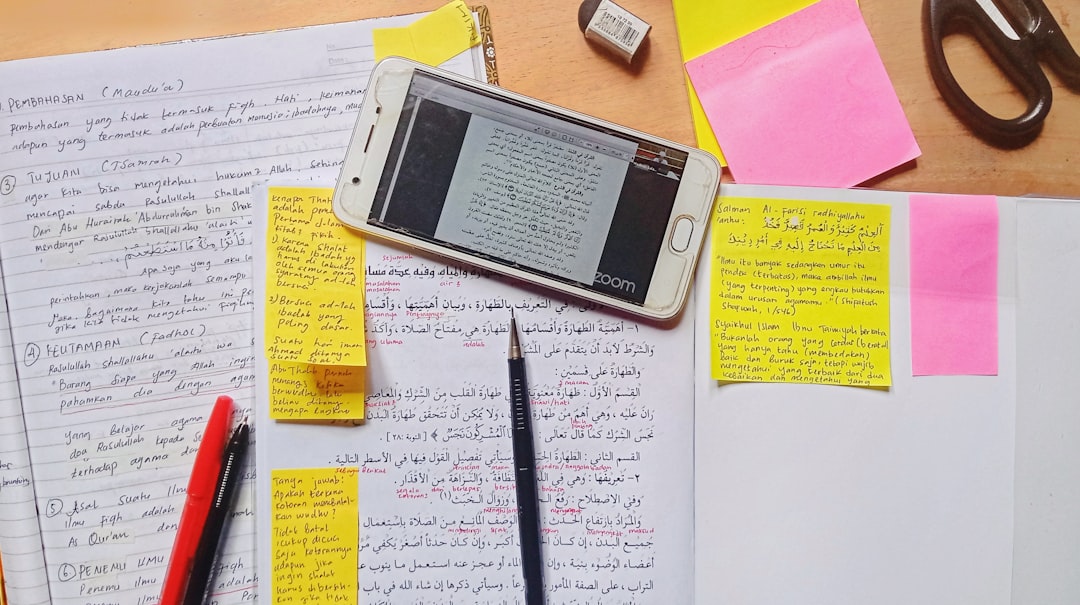The advent of artificial intelligence (AI) has revolutionized numerous sectors, and education is no exception.
These advanced systems are designed not only to impart knowledge but also to understand and respond to the emotional states of their learners.
By integrating emotional intelligence into their algorithms, these tutors can create a more personalized and supportive learning environment, addressing the unique needs of each student. This approach marks a significant shift from traditional educational methods, which often overlook the emotional dimensions of learning. AI-powered tutors equipped with emotional intelligence can analyze a student’s facial expressions, voice tone, and even physiological responses to gauge their emotional state.
This capability allows them to adapt their teaching strategies in real-time, providing encouragement when a student feels frustrated or offering additional challenges when a student is excelling. The potential for these intelligent systems to foster a more engaging and empathetic learning experience is immense, as they can bridge the gap between cognitive understanding and emotional support. As we delve deeper into this topic, it becomes clear that the integration of emotional intelligence into AI tutoring systems could redefine the educational landscape.
Key Takeaways
- AI-powered tutors with emotional intelligence can provide personalized learning experiences for students, catering to their individual needs and emotional states.
- Emotional intelligence plays a crucial role in education by helping students develop self-awareness, self-regulation, motivation, empathy, and social skills.
- AI-powered tutors with emotional intelligence can enhance student engagement, motivation, and learning outcomes by providing personalized feedback and support.
- Challenges and limitations of AI-powered tutors with emotional intelligence include the potential for bias in algorithms, privacy concerns, and the need for human oversight.
- Ethical considerations in developing AI-powered tutors with emotional intelligence include ensuring data privacy, transparency in decision-making processes, and addressing potential biases in the technology.
The Role of Emotional Intelligence in Education
The Impact of Emotional Intelligence on Teaching
In an educational context, teachers with high emotional intelligence can create a nurturing environment that fosters student engagement and motivation. They can identify when students are struggling emotionally and provide the necessary support, thereby enhancing the overall learning experience.
The Benefits of Emotional Intelligence for Students
Moreover, students themselves benefit from developing emotional intelligence skills. Research has shown that students with higher levels of EI tend to perform better academically, exhibit improved social skills, and demonstrate greater resilience in the face of challenges.
The Future of Education: Integrating AI-Powered Tutors with Emotional Intelligence
By cultivating emotional intelligence within educational settings, schools can equip students with essential life skills that extend beyond academic achievement. The integration of AI-powered tutors with emotional intelligence can further enhance this process by providing tailored support that addresses both cognitive and emotional needs, ultimately leading to a more holistic approach to education.
Advantages of AI-Powered Tutors With Emotional Intelligence

The advantages of AI-powered tutors with emotional intelligence are manifold. One of the most significant benefits is their ability to provide personalized learning experiences. Traditional classroom settings often struggle to cater to the diverse needs of individual students due to time constraints and varying levels of understanding.
In contrast, AI tutors can analyze data from each student’s interactions and adapt their teaching methods accordingly. For instance, if a student consistently struggles with a particular concept, the AI tutor can modify its approach, offering alternative explanations or additional practice problems tailored to the student’s learning style. Another notable advantage is the potential for increased engagement and motivation among students.
By responding appropriately—perhaps by introducing gamified elements or providing positive reinforcement—these tutors can help maintain a student’s enthusiasm for learning. This adaptability not only enhances the educational experience but also fosters a sense of agency in students, empowering them to take control of their learning journey.
Challenges and Limitations of AI-Powered Tutors With Emotional Intelligence
Despite the promising potential of AI-powered tutors with emotional intelligence, several challenges and limitations must be addressed. One significant concern is the accuracy of emotional recognition algorithms. While advancements in machine learning have improved the ability of AI systems to interpret human emotions, these technologies are not infallible.
Misinterpretations can lead to inappropriate responses, potentially exacerbating a student’s frustration or disengagement rather than alleviating it. Ensuring that these systems are trained on diverse datasets that encompass various cultural expressions of emotion is crucial for minimizing bias and improving accuracy. Additionally, there are concerns regarding the over-reliance on technology in education.
While AI tutors can provide valuable support, they should not replace human interaction entirely. The nuances of human relationships—such as empathy, compassion, and understanding—are difficult for machines to replicate fully. Educators play an irreplaceable role in fostering social connections and providing mentorship that extends beyond academic instruction.
Striking a balance between leveraging AI technology and maintaining meaningful human interactions is essential for creating an effective educational environment.
Ethical Considerations in Developing AI-Powered Tutors With Emotional Intelligence
The development of AI-powered tutors with emotional intelligence raises several ethical considerations that must be carefully navigated. One primary concern is data privacy. These systems often rely on collecting sensitive information about students’ emotional states and learning behaviors.
Safeguarding this data is paramount to protect students from potential misuse or breaches of privacy. Educational institutions must establish clear policies regarding data collection, storage, and usage to ensure that students’ rights are respected. Moreover, there is the question of equity in access to these advanced technologies.
As schools increasingly adopt AI-powered solutions, disparities may arise between institutions with ample resources and those lacking funding or infrastructure. Ensuring equitable access to AI tutors is essential for preventing further widening of the educational achievement gap. Policymakers and educators must work collaboratively to develop strategies that promote inclusivity and ensure that all students benefit from the advantages offered by AI-powered tutoring systems.
Implementing AI-Powered Tutors With Emotional Intelligence in Educational Settings

The successful implementation of AI-powered tutors with emotional intelligence in educational settings requires careful planning and consideration. First and foremost, educators must be adequately trained to integrate these technologies into their teaching practices effectively. Professional development programs should focus on equipping teachers with the skills necessary to leverage AI tools while maintaining their roles as facilitators of learning.
This training should emphasize how to interpret data generated by AI systems and how to use it to inform instructional decisions. Furthermore, collaboration between educators, technologists, and policymakers is essential for creating an ecosystem that supports the effective use of AI tutors. Schools should engage in pilot programs that allow for experimentation with different AI tools while gathering feedback from students and teachers alike.
This iterative process can help identify best practices and areas for improvement, ensuring that the implementation of AI-powered tutors aligns with educational goals and meets the needs of all stakeholders involved.
The Future of AI-Powered Tutors With Emotional Intelligence
Looking ahead, the future of AI-powered tutors with emotional intelligence appears promising yet complex. As technology continues to evolve, we can expect significant advancements in natural language processing, machine learning algorithms, and affective computing—fields that will enhance the capabilities of these intelligent systems. Future iterations may be able to engage in more nuanced conversations with students, providing not only academic support but also mentorship and guidance on social-emotional issues.
Moreover, as educational institutions increasingly embrace blended learning models that combine traditional classroom instruction with online resources, AI-powered tutors will likely play an integral role in this transformation. They could serve as supplementary resources that provide personalized support outside of regular school hours, allowing students to learn at their own pace while receiving immediate feedback on their progress. However, as we move forward into this new era of education, it will be crucial to remain vigilant about ethical considerations and ensure that these technologies are used responsibly and equitably.
The Impact of AI-Powered Tutors With Emotional Intelligence on Education
The integration of AI-powered tutors with emotional intelligence has the potential to significantly impact education by creating more personalized and supportive learning environments. By recognizing and responding to students’ emotional states, these intelligent systems can enhance engagement, motivation, and overall academic performance. However, it is essential to navigate the challenges associated with accuracy, ethical considerations, and equitable access as we embrace this technological advancement.
As we continue to explore the possibilities offered by AI in education, it is vital to remember that technology should complement—not replace—the invaluable human connections that underpin effective teaching and learning. By striking a balance between leveraging AI’s capabilities and fostering meaningful relationships within educational settings, we can create an enriched learning experience that prepares students for success in an increasingly complex world.
If you are interested in the future of AI-powered technology, you may also want to check out this article on how smartwatches are enhancing connectivity. Smartwatches are another example of how technology is advancing to provide more personalized and efficient solutions for everyday tasks. Just like AI-powered tutors with emotional intelligence, smartwatches are changing the way we interact with technology and improving our overall experience.
FAQs
What is an AI-powered tutor with emotional intelligence?
An AI-powered tutor with emotional intelligence is a virtual learning assistant that uses artificial intelligence to understand and respond to the emotions and learning needs of students. It can adapt its teaching style and content based on the emotional state of the student.
How does emotional intelligence benefit AI-powered tutors?
Emotional intelligence allows AI-powered tutors to better understand and connect with students, leading to more effective and personalized learning experiences. It can help in building trust, motivation, and engagement with the students.
What are the potential applications of AI-powered tutors with emotional intelligence?
AI-powered tutors with emotional intelligence can be used in various educational settings, including schools, online learning platforms, and corporate training programs. They can assist students in subjects like math, science, language learning, and more.
What are the challenges in developing AI-powered tutors with emotional intelligence?
Challenges in developing AI-powered tutors with emotional intelligence include accurately interpreting and responding to human emotions, ensuring ethical and responsible use of emotional data, and maintaining student privacy and data security.
How can AI-powered tutors with emotional intelligence impact the future of education?
AI-powered tutors with emotional intelligence have the potential to revolutionize education by providing personalized and adaptive learning experiences for students. They can help address individual learning needs, improve student engagement, and support educators in delivering high-quality education.

